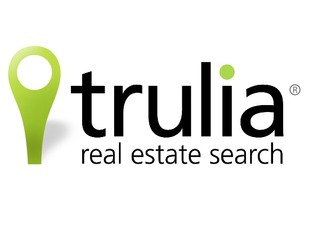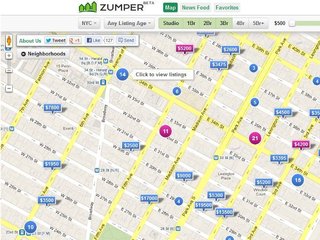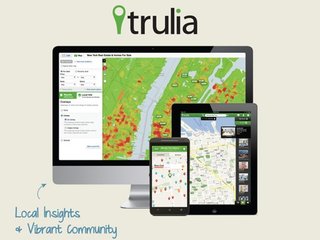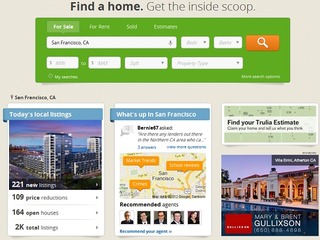Trump rescinds Biden executive order on artificial intelligence
The EO set AI safety and security standards and called for a report on AI's impact on labor
Read more...
One-third of all homes in the U.S. are renter-occupied, according to the Census Bureau. The largest proportion of renters are millennials, for whom home-ownership has been on the decline since the mid-2000s. Some 37% of those ages 25-29 years old were home owners in 2010 (the most recent year for which information is available), down from 42% in 2006. For those 30-34 years old, the rate of home ownership is now lower than it was in 1990.
Is that a bad thing?
The reality is that home ownership is no longer the benchmark of adulthood that it once was. Jobs move, neighborhoods change, more people are loaded down with student debt, and the economy is on a very slow mend. And, as most are aware, jobs are hard to come by these days. More than half (53%) of recent college graduates are either unemployed or working in jobs that don’t require a college degree.
With poor job security and an increasingly globalized economy that may have you relocating across the country, if not overseas, it’s little wonder sociologists are now calling the 18- to 34-year-old group “Generation Rent.” It just doesn’t seem to make financial sense to get locked into a 30-year loan on a house that could make it next-to-impossible to bail quickly if you have to follow a job elsewhere. And God help you if the neighborhood goes south and your home value depreciates. You walk away, and you find yourself in a credit nightmare.
All of these factors make it difficult for young adults to plan the big life changes, like when to get married, have kids, and buy good, quality steak knives.
As more Gen Y’ers are eschewing home ownership for rental deals instead, they’re turning to sites like Craigslist to find their perfect apartment. But there are some problems with that set up. Craigslist is riddled with scams and outdated listings. So sites like Apartment List are cropping up to help meet the needs of the rising tide of renters.
Enter Apartment List
Launched in September 2011, Apartment List had 500,000 visitors last month. Winner of the most recent Vator Splash SF, judges were impressed with the startup’s product—so much so that they likened Apartment List’s pitch with a couple of major leaguers competing against rookies. The company has already raised $1 million in angel funding from angels like Bradford Stroh, Scott Ingraham, Ariel Poler, and Denis Grosz.
The company pitched the same day that rival site Zumper announced a $1 million seed round of its own. And, oddly enough, one of Zumper’s investors happened to be on the panel judging Apartment List.
And today, Craigslist made a big change to its own apartment listings with a new “map view” feature that allows users to get an immediate visual of where the listed properties are on a map.

Why are apartment listings getting so much attention right now?
“There have been a lot of new entrants recently, driven by the perceived ability to ‘scrape’ Craigslist, and many recent UX innovations,” said Brad Stroh, CEO of Bills.com and one of Apartment List’s investors. "It’s also an industry that’s very front-and-center in our lives. It’s one of the largest transactions we deal with… Ultimately, the really big competitors that we see are the incumbent (thank you, Craig!) and the well backed and well-resourced smart teams at Trulia and Zillow.”
Apartment List got its start when founders John Kobs and Chris Herndon—both landlords and renters—were dealing with the pain of trying to find the right apartment, dealing with brokers, scouring paid listing sites, and simultaneously trying to fill the properties they owned in Cleveland and Austin.
They came up with Apartment List as something of a Kayak for rental properties by consolidating millions of listings from across the Web (working with partners like Rent.com, Forrent.com, and others), and delivering it all via one site. The site offers an array of unique features for comparing and sharing properties, as well as information on individual neighborhoods, such as “workability” and “stroller index.”
“We’re in the heart of a boom in San Francisco that is very landlord friendly,” said CEO John Kobs. “When you walk down a street and see 50 people standing on a sidewalk, chances are they’re going to an overbooked open house.”
Growing urban population
Indeed, more people are moving to cities today than ever before. In fact, the population growth in cities is now outpacing that of the suburbs for the first time in 100 years, according to recent Census Bureau data. Some 80% of the U.S. population now lives in cities. Additionally, fewer millennials than ever before are buying cars. When you live in a city where you can order a ride from your smartphone, a car just isn’t the necessity it once was.
The site is meeting a clear pain point in the market. The company has been profitable for two and a half years, with a current run rate is $13 million. Kobs says that Apartment List isn’t competing with the likes of Rent.com or Forrent.com, but rather with sites like Trulia and Zillow, both of which recently went public.
Since launching in 2004, Trulia has amassed a user base of 360,000 active real estate professionals, 21,544 of whom are paying customers. In June, Trulia had 22 million unique monthly visitors, which is up from five million in June 2009. Additionally, subscribers have increased to 21,544 from some 2,400 in 2009.
Trulia debuted on Nasdaq last month at $17 a share and closed out Friday at $22.70.
Trulia and Zillow offer rental listings, but they’re best known for their real estate listings. Kobs doesn’t see Apartment List going that route, though.
“I see a bigger opportunity in other large categories on Craigslist—like the automobile industry. We might consider building a car search engine. Everything we do is centered around solving consumer pain points—these are things everybody does throughout their lifetime, and if we can build a better experience for that, then we can kill two big birds with one stone.”
Image source: goodinc.com
The EO set AI safety and security standards and called for a report on AI's impact on labor
Read more...The agency also published draft guidance on the use of AI in drug development
Read more...The biggest focus areas for AI investing are healthcare and biotech
Read more...Startup/Business
Joined Vator on
Apartment List is the fastest-growing online rental marketplace, and we’re on a mission to help everyone find a home they love while making the search process simple. By asking our renters the important questions, we offer personalized results that meet your apartment wishlist. With over four million units on the site, we’ve reached over 150 million renters in over 40 cities.
Since inception, Apartment List has raised $110 million in funding from investors including Allen & Company LLC, Canaan Partners, Industry Ventures, Matrix Partners, Passport Capital, Quantum Partners LP, a private investment fund managed by Soros Fund Management LLC, Tenaya Capital, and WTI.
Founded in 2011 by CEO John Kobs and COO Chris Erickson, Apartment List calls San Francisco home.
Learn more at www.apartmentlist.com.

Joined Vator on
Entrepreneur, mentor and investor. Founder of IPRO, Topica & TextMarks. Director of Freedom Financial, Strava, StumbleUpon, LinkExchange & Odeo. Investor in AdMob, SlideShare, Optimizely, Thumbtack, Flixster, BrightRoll... Into Human Augmentatiion.
Joined Vator on
CEO - Bills.com and Freedom Financial Network. Investor and advisor to multiple early stage start-ups, board member to four current investments.
Joined Vator on

Joined Vator on
Co-founder and CEO of Apartment List
Joined Vator on
CEO of Conjecture Corporation, a network of consumer websites reaching over 10MM unique visitors per month. Investor/Advisor of web startups.
Joined Vator on
Chris is the Co-Founder of Apartment List. Previously, he worked at Goldman Sachs, Chicago PE firm GTCR and the 40 Acres Group (which he co-founded). Chris is a Texas undergrad and Stanford MBA.





